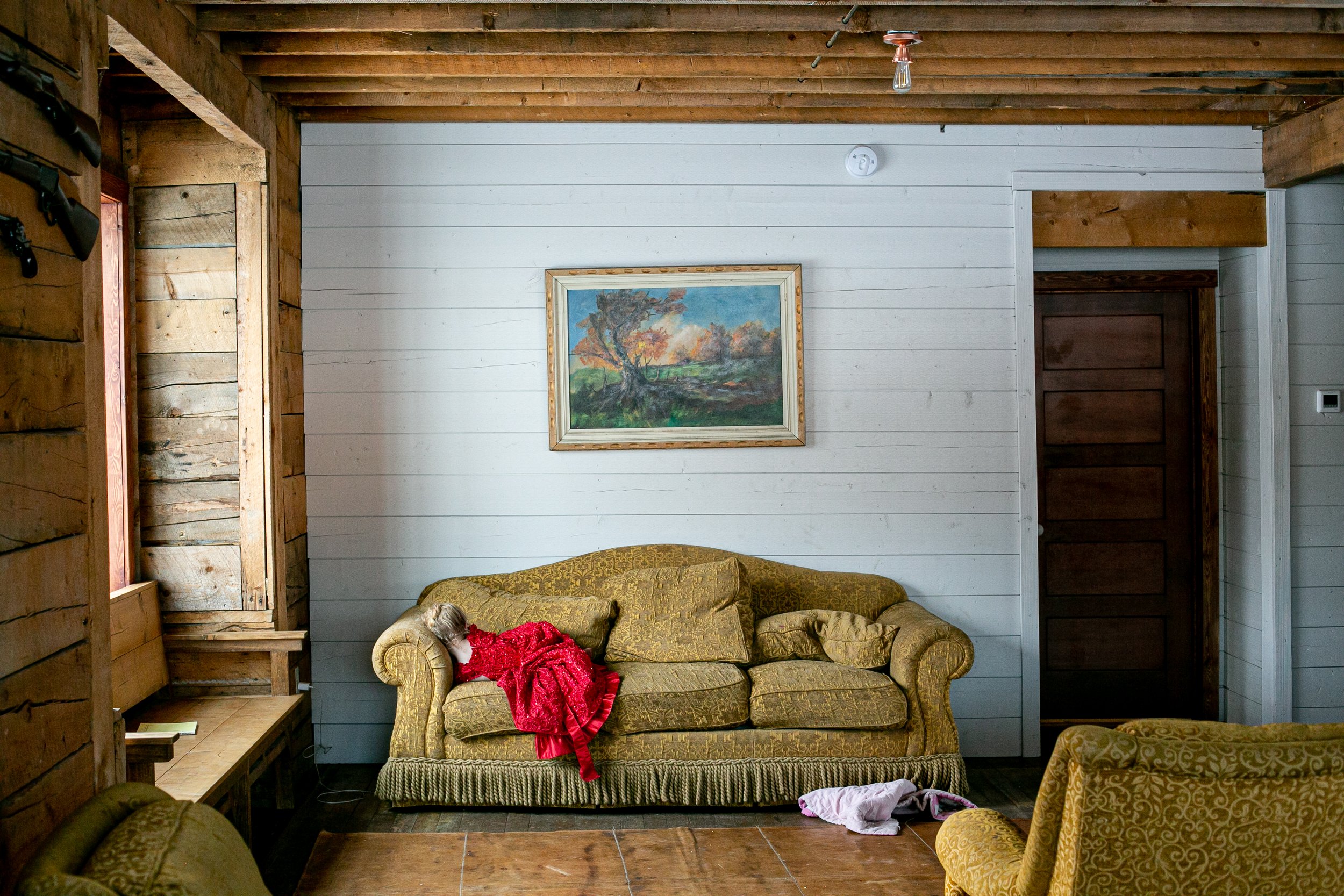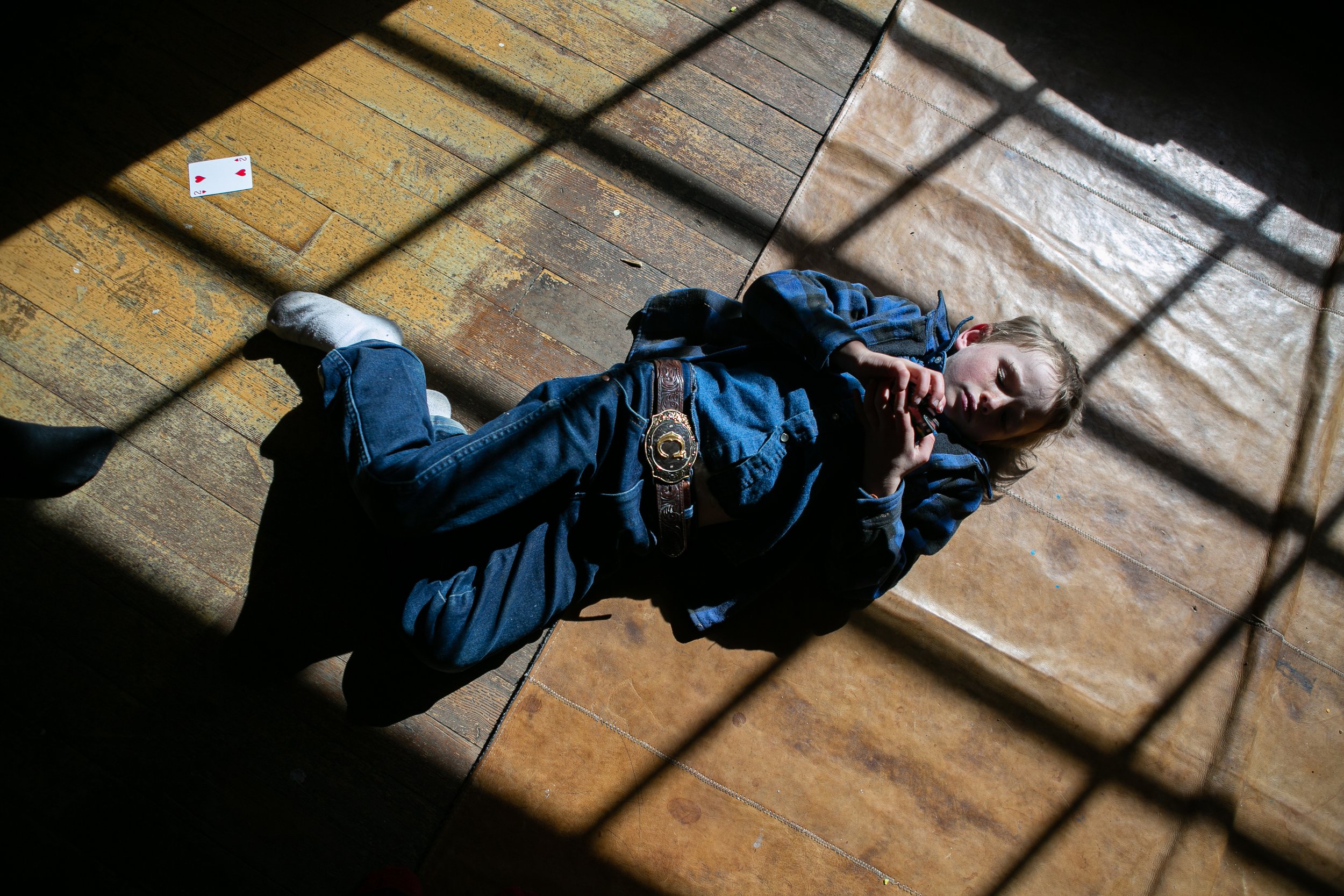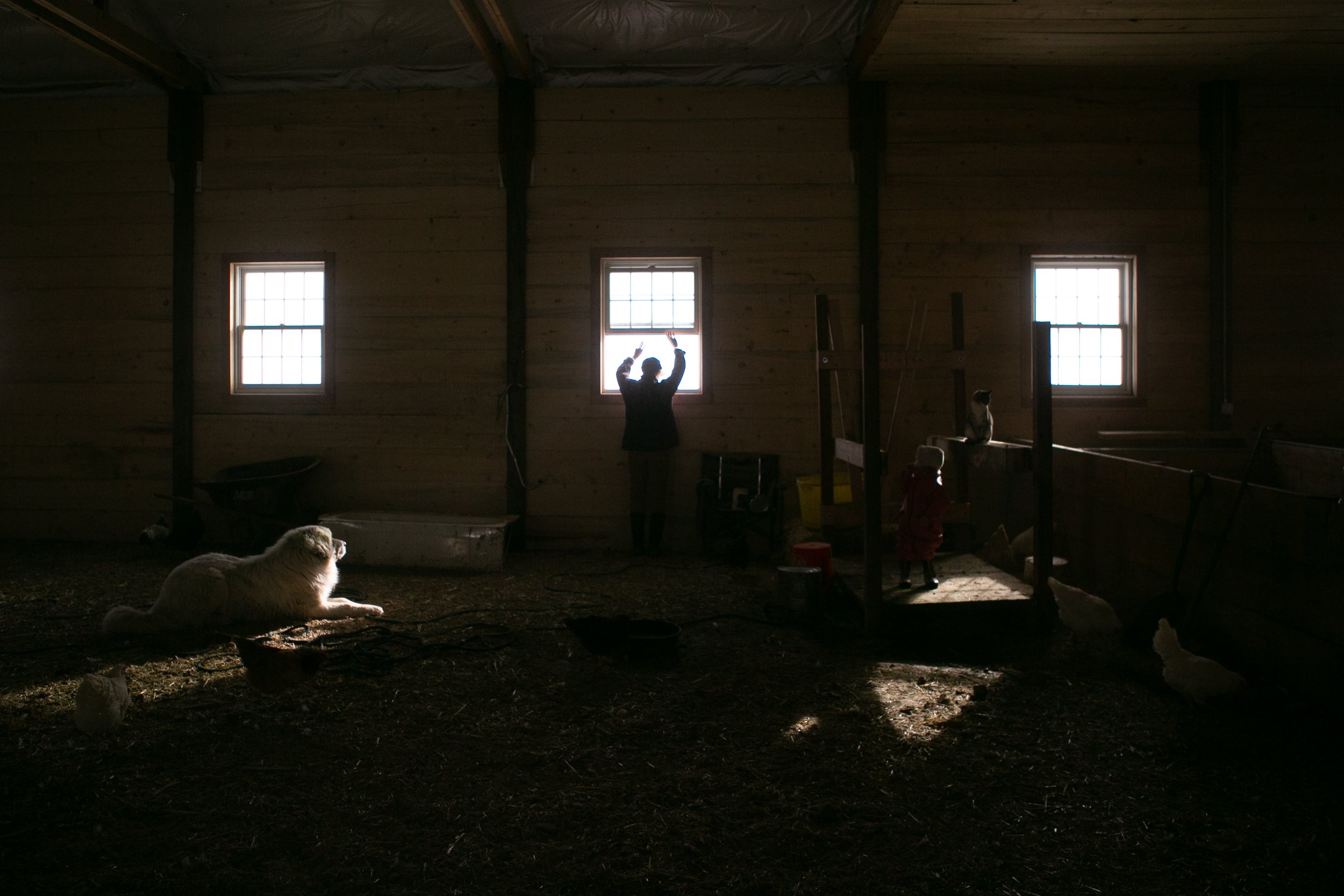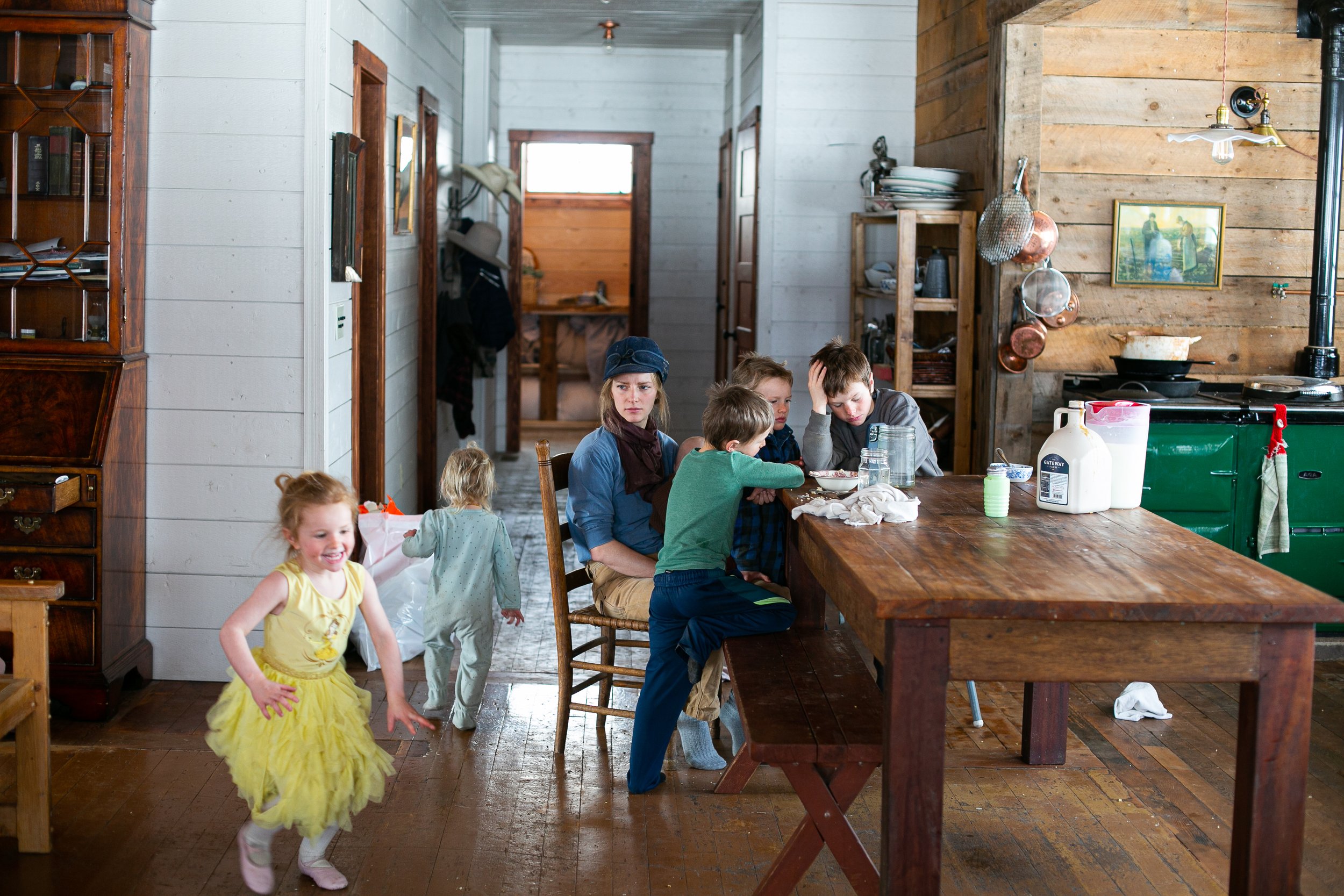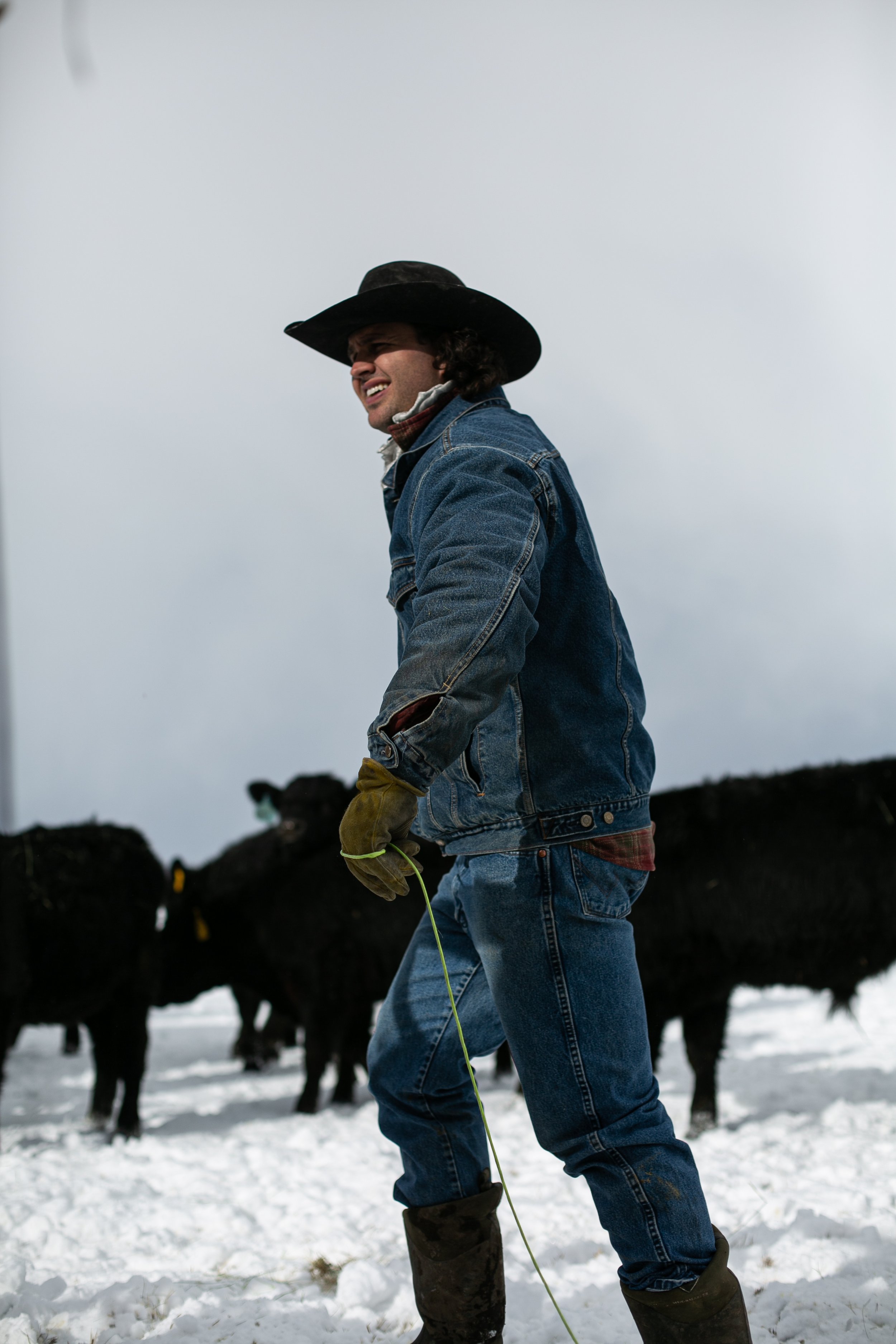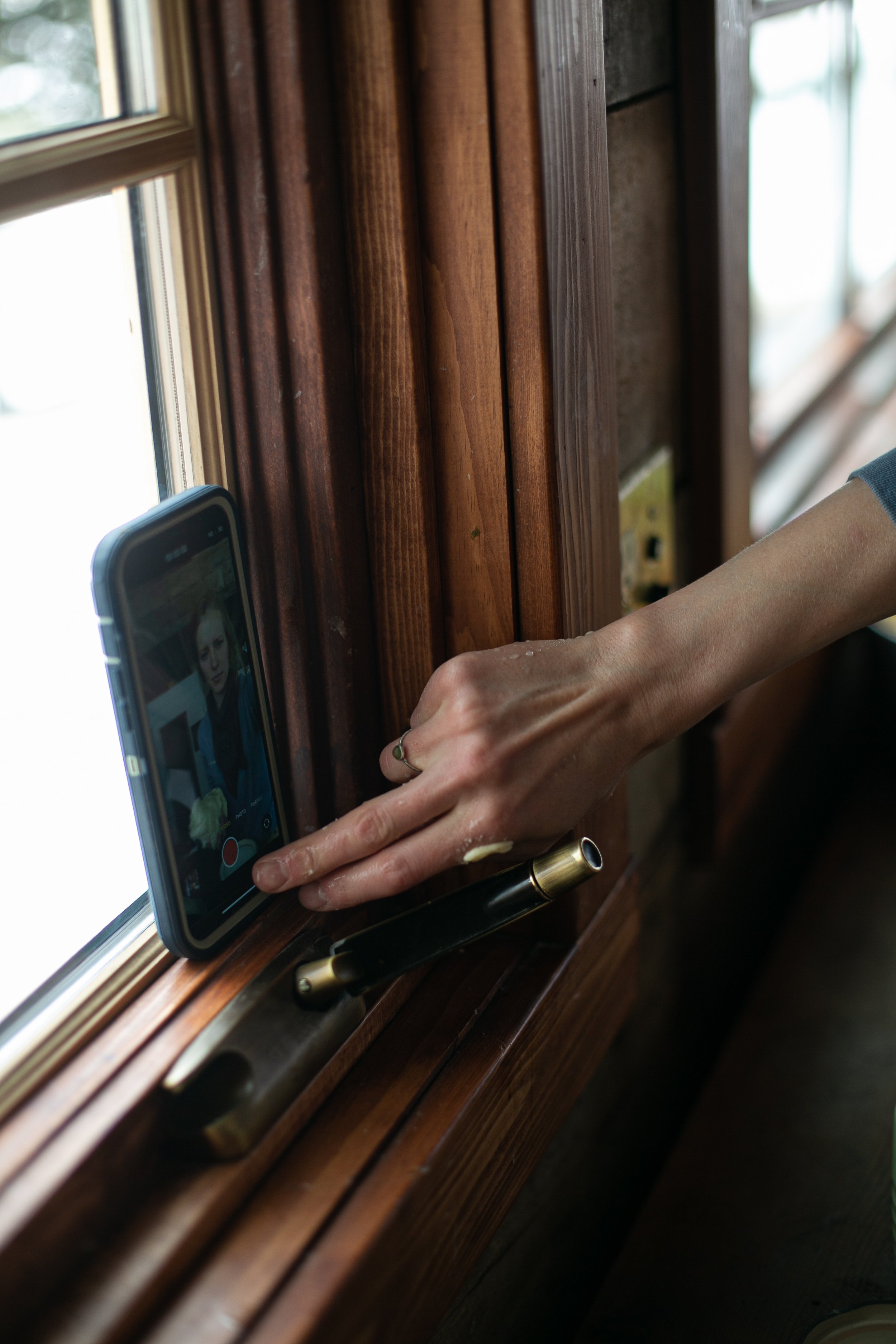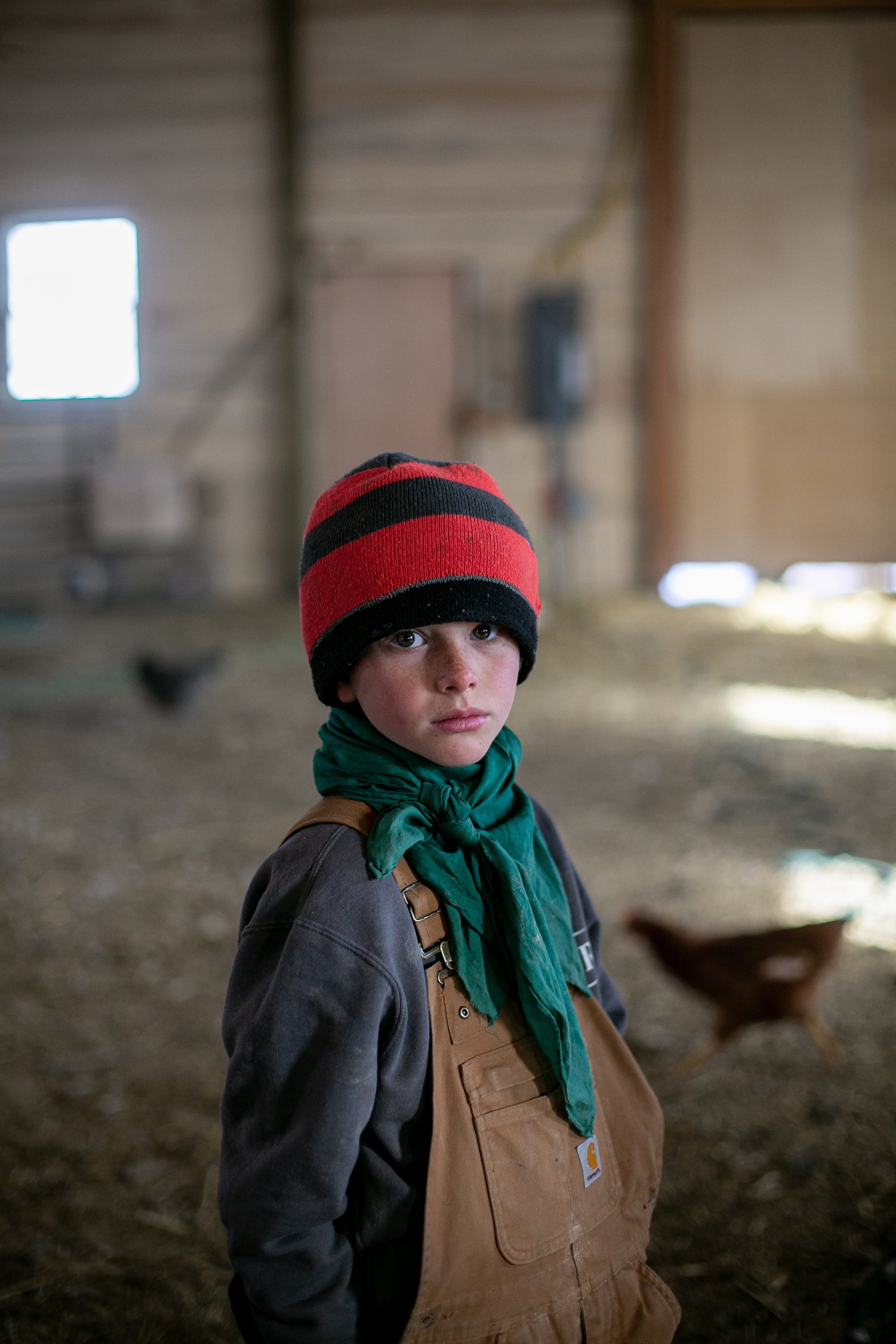Rural America is in trouble and the media isn’t helping
Story and photos by Paige Southwood
Lily Andersen straps her six-month-old baby girl to her back as snow falls in blankets outside her ranch house. Generations of her family have passed through the same doors she now closes behind her as she follows her husband and three-year-old daughter into the blowing snow. There’s no time to linger inside. The animals are waiting.
Andersen is part of a four-generation working cattle and dairy ranch in Montana’s Paradise Valley fighting to stay relevant in a quickly changing agricultural landscape. She is passionate about the dairy business and committed to seeing her extended family and children thrive.
Lily Andersen and her family do chores together on a snowy Montana morning.
Lily checks the dairy housing after an evening of milking.
But for the average American farmer, times are tough and families like the Andersens are increasingly dependent on a political system that supports the deconsolidation of producers and processors while boosting regenerative farming and ranching efforts. That’s a difficult ask when the typical consumer is bombarded by media villainizing and misrepresenting the agriculture industry at large.
No thanks are given to the skyrocketing success of shows like “Yellowstone” which portrays a side of ranching to which very few can relate.
The same can be said of Ballerina Farm - Hannah and Daniel Neeleman’s family farm empire in the mountains near Park City, Utah. Fueled by millions of Instagram followers enchanted with their idyllic lifestyle and rural dream, the Neelemans have built a business selling pasture-raised beef, free-range pork and farm goods. The Neeleman’s Ballerina Farm has found a way to satisfy an emotional need for nostalgia with physical goods. But while Ballerina Farm can literally bring their farm to your table, consumers risk the marketing trap of buying into the Elysian ranch-life trope buoyed by family money and privilege, further dividing the rural from the urban. Such a result could only add kindling to the volatile political and economic climate in which most agriculturalists are struggling to get by.
As Gina Florio says in her culture essay on Ballerina Farm for Evie.com, “Their lifestyle is a nostalgic one that makes just about anyone fantasize about what it would be like to give everything up in the city and move out into the open country.”
Problems arise when those living in the open country feel completely misrepresented and misunderstood. What follows is a growing demographic at odds with middle America. With Trump’s presidency in the viewfinder, we see what can happen when rifts like these are allowed to spread.
Hannah Neeleman milks in the sunlit barn on a chilly winter afternoon flanked by one of her sons and her many barnyard animals.




